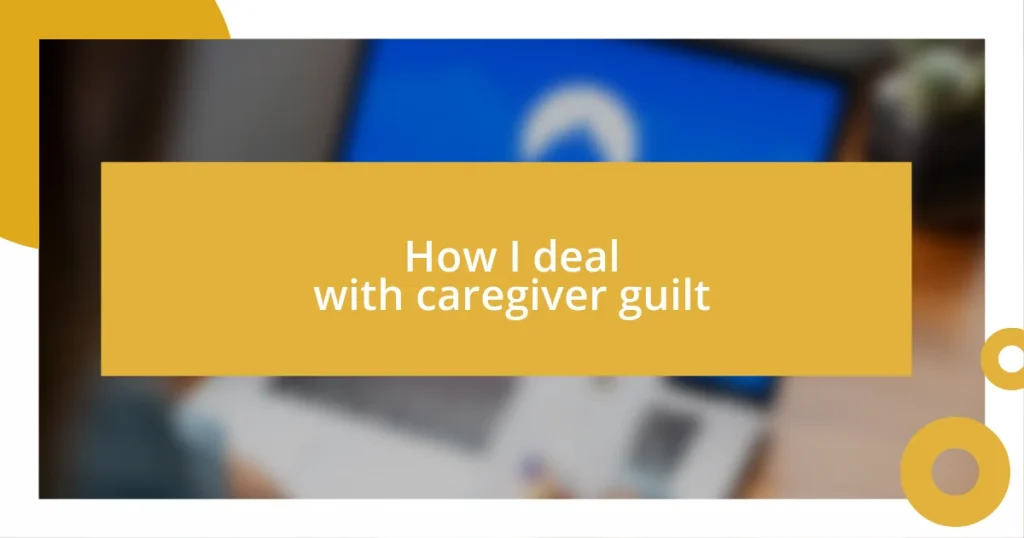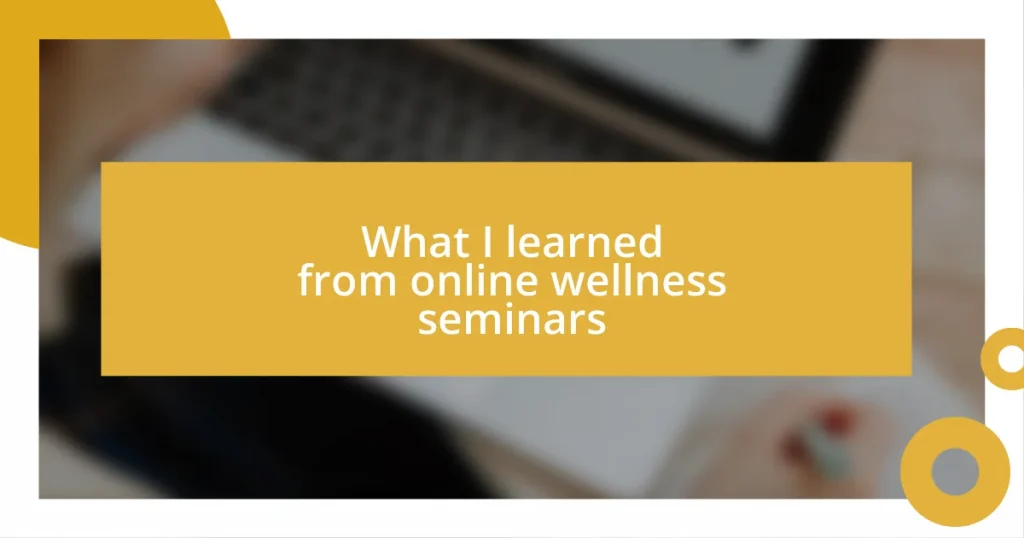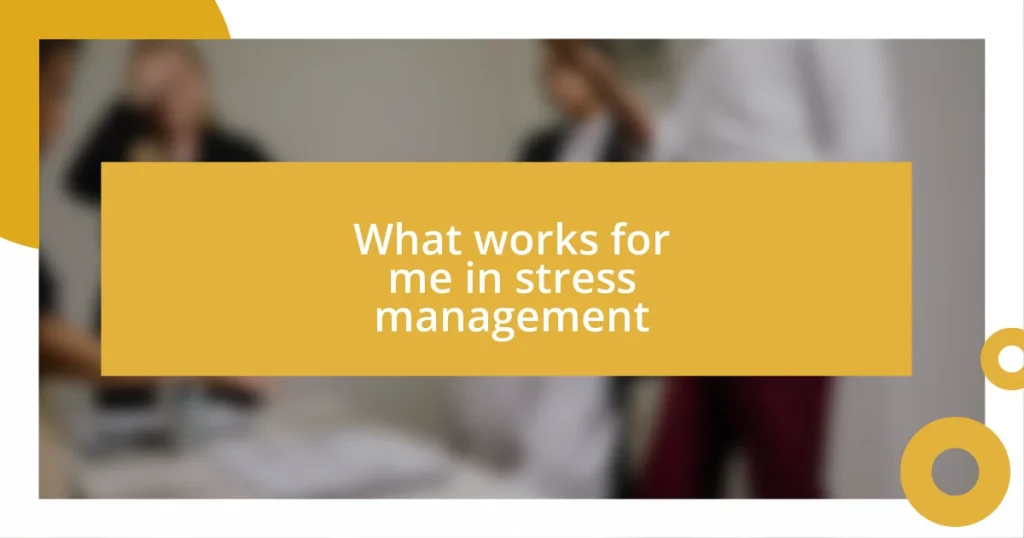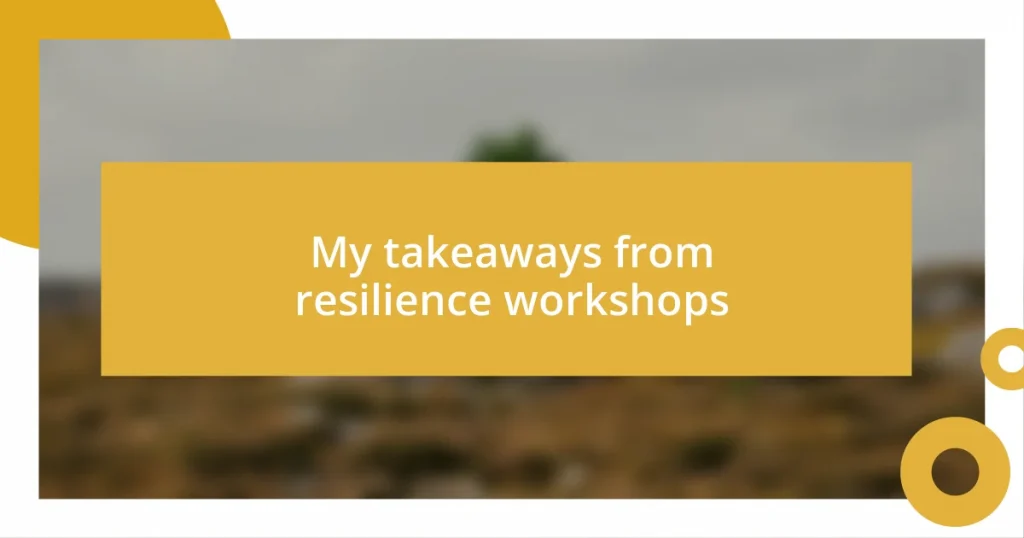Key takeaways:
- Caregiver guilt is a common emotion that arises from the pressure to meet unrealistic expectations and the neglect of self-care, highlighting the necessity of prioritizing one’s own well-being.
- Recognizing signs of guilt, such as anxiety about breaks and physical symptoms like fatigue, is essential for caregivers to address underlying issues instead of merely coping with the effects.
- Implementing self-care strategies, setting realistic goals, and developing a positive mindset can significantly alleviate caregiver guilt and enhance the overall quality of caregiving.

Understanding caregiver guilt
Caregiver guilt often stems from the feeling that we’re not doing enough for those we care for. I remember a time when I took a few hours for myself, guilt washing over me like a tidal wave. Can I really justify prioritizing my needs when they need me by their side? It’s a question we all grapple with, and it’s completely normal.
I once felt torn when I had to step away for a family event. It felt selfish to think of my own happiness while my loved one was struggling. In moments like these, I found myself asking, “Am I letting them down?” This inner dialogue is more common than many realize, highlighting just how profound caregiver guilt can be.
Understanding this guilt means acknowledging it as a natural part of being a caregiver. The truth is, we can’t pour from an empty cup. It’s essential to recognize that caring for ourselves isn’t just acceptable; it’s necessary. What would happen if we embraced self-care as a strength rather than a weakness? That shift in perspective can be liberating.

Recognizing the signs of guilt
Recognizing the signs of guilt can sometimes be tricky, especially when we’re deep in the caregiving role. For me, it often manifested as a nagging sensation in the pit of my stomach when I thought about taking time for myself. I remember once debating whether to go for a long-awaited coffee catch-up with a friend. The thought sent a wave of anxiety through me, and I couldn’t shake the feeling that I was abandoning my responsibilities.
Another sign I noticed was an overwhelming sense of frustration. During a particularly tough week, I found myself snapping at my loved one over little things. It was a clear indicator that my emotional tank was running low. Recognizing these moments, instead of brushing them off as normal stressors, helped me understand that guilt was creeping in. I learned to pay attention to my reactions, which often spoke louder than my words.
I often found that the guilt would physically weigh on me, leading to fatigue or even headaches. It’s interesting how our bodies can reflect our emotional state. Taking a moment to pause and assess why I was feeling this way became a crucial step in my self-awareness journey. By being attuned to these signs, I could start addressing the underlying guilt, rather than merely coping with its symptoms.
| Signs of Caregiver Guilt | Personal Experience |
|---|---|
| Feeling anxious about taking breaks | I felt uneasy leaving for a coffee, fearing I’d let my loved one down. |
| Snapping at loved ones over small things | After a tough week, I realized I was irritable due to pent-up frustration. |
| Experiencing physical symptoms like fatigue | Headaches and exhaustion were my body’s way of signaling that I needed to address my emotional guilt. |

Addressing personal expectations
One of the ways I’ve managed caregiver guilt is by addressing my personal expectations. I had to confront the notion that perfection is unattainable. There was a time when I believed I had to handle everything without needing help or showing any signs of fatigue. Instead of burning out, I’ve learned to be kinder to myself and accept that my best may vary from day to day.
- Accepting imperfection: I remind myself that it’s okay to not meet every expectation I set.
- Shifting the narrative: When I feel overwhelmed, I ask, “What would I tell a friend in my position?” This often reveals that I’d encourage them to take breaks, too!
- Setting realistic goals: I now prioritize my tasks, focusing on what truly matters for both myself and my loved one, letting go of non-essential duties.
Ultimately, relinquishing the need to be perfect has allowed me to find a more balanced perspective on my role as a caregiver. This shift not only benefits me, but also enhances the quality of care I provide.

Implementing self-care strategies
Implementing self-care strategies has been a game-changer for me, especially in managing caregiver guilt. I remember one particularly exhausting week when I decided to take a long, quiet bath—a simple act that felt almost indulgent. As I submerged myself in the warm water, I was amazed at how quickly the tension seeped away. It made me realize how essential it is to carve out time for these small acts of self-care.
Journaling has also played a significant role in my self-care routine. One evening, after a challenging day, I poured my feelings onto the page, expressing my frustrations about not being able to do it all. I found that acknowledging my emotions in writing was cathartic and helped clarify what I truly needed. Is there anything more freeing than letting your thoughts flow without judgment? I think not! It’s surprising how often we overlook our own thoughts and feelings amidst our caregiving duties.
I’ve also found that scheduling “me time” into my week helps alleviate guilt. There was a time when I felt guilty just thinking about planning a day out for myself. Now, I treat it as a non-negotiable appointment on my calendar. I once committed to joining a weekly yoga class, and it turned out to be one of the best decisions I’ve made. These moments allow me to recharge, which ultimately benefits the care I provide. How do you prioritize your own needs amidst caregiving responsibilities? For me, making self-care a priority transformed not only my perspective but also my overall wellbeing.

Communicating with support networks
Communicating with my support network played an essential role in alleviating caregiver guilt. There was a moment when I reached out to a close friend during a particularly tough week. Just hearing her say, “You’re doing your best, and it’s okay to lean on others,” reminded me of the importance of sharing my struggles. It’s amazing how a simple conversation can lighten the emotional load we often carry alone.
I’ve also learned to establish clear boundaries with my support network. For instance, when I was feeling overwhelmed, I communicated specifically what kind of help I needed—be it companionship during doctor appointments or just someone to listen. By expressing these needs rather than assuming others would understand, I found that my relationships grew stronger, and I felt less guilt about asking for support. Isn’t it curious how much lighter the heart feels when you articulate your needs?
Moreover, I often organize regular check-ins with my family and friends. This practice not only keeps everyone updated on my situation but also creates a space for mutual support. I remember scheduling a weekly coffee catch-up with a friend, which became a highlight of my week. Through these open lines of communication, I’ve realized that vulnerability can strengthen connections, reminding us that we’re all in this together. Have you thought about how often you share your emotions with those around you? You might discover that granting others insight into your journey fosters a greater sense of community and understanding.

Setting realistic caregiving goals
Setting realistic caregiving goals has been essential in managing both my expectations and my guilt. I remember when I first took on the role of caregiver; I aimed to be everything to everyone, only to find myself overwhelmed and exhausted. By breaking tasks down into smaller, manageable goals, like tackling one chore a day instead of thinking I had to do it all at once, I noticed a huge shift. Have you ever felt like your plate was too full? Focusing on smaller victories helps build confidence and reduces that daunting sense of responsibility.
I also started setting specific time frames for my caregiving activities. For example, I allocated just 30 minutes a day for organizing medical paperwork or planning meals. Initially, it felt strange to limit my time, but I soon realized that these time boundaries helped me remain focused and less resentful about the tasks at hand. Isn’t it fascinating how giving ourselves permission to have limits can lead to greater productivity? Once I embraced this idea, I often finished my tasks quicker, allowing me to enjoy guilt-free moments of rest and relaxation.
Additionally, I learned to regularly reassess my goals based on my emotional and physical energy levels. There was a week when I felt particularly drained; instead of pushing through, I lowered my expectations and focused on connection rather than tasks. Simply spending quality time watching a movie together instead of worrying about cleaning the house turned out to be far more rewarding. Have you assessed whether your goals allow for flexibility? This adaptability has truly helped me navigate the ups and downs of caregiving without the accompanying guilt.

Developing a positive mindset
Developing a positive mindset has been a game-changer for me in navigating caregiver guilt. For instance, I used to dwell on what I hadn’t accomplished each day, but now I take a moment to reflect on the small victories. That shift in perspective—celebrating the little things, like cooking a meal or sharing a laugh—has added a layer of joy that I never realized was missing. Isn’t it incredible how focusing on the positives can change our energy?
I also found that practicing gratitude has significantly improved my outlook. Each night, I jot down three things I’m thankful for, even if they seem minor. Once, I wrote how grateful I was for a sunny day that allowed us to sit outside together. This simple act helped me recognize the beauty in everyday moments rather than getting lost in feelings of inadequacy. Have you considered how gratitude can reshape your mindset? It’s a small ritual that can make a profound difference in how we perceive our challenges.
Moreover, I’ve embraced mindfulness techniques, which have taught me to stay present. There was a time when my mind raced with worries about the future or regrets about the past. I began practicing deep breathing exercises, and one day, while simply sitting with my loved one, I realized how powerful it was to just “be” in that moment. What would happen if you tried to bring your awareness to the present? I found that it has brought clarity and peace, enabling me to let go of guilt and fully enjoy my caregiving journey.















